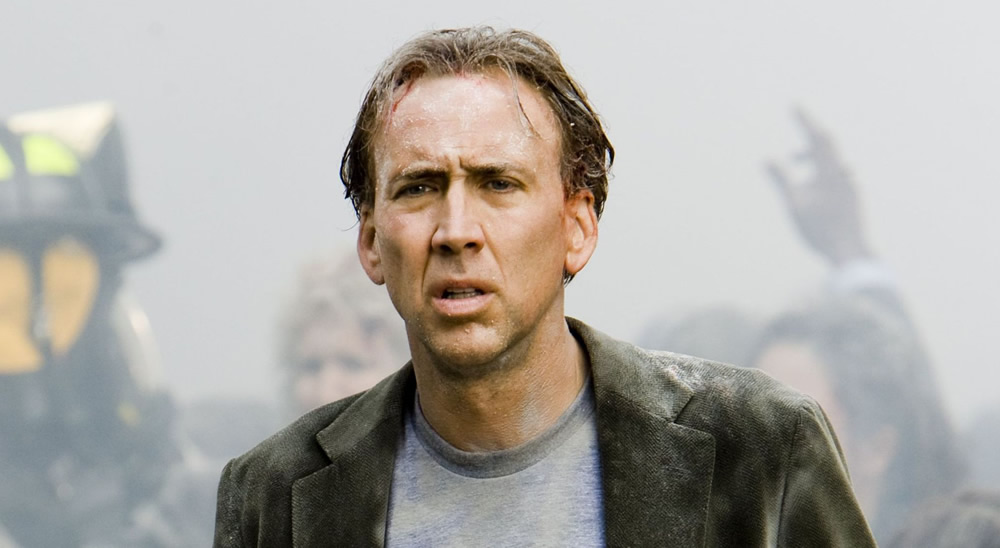
The late Roger Ebert was one of the most respected film critics in the business. Millions turned to his article in the Chicago Sun-Times or his blog to see what he had said about upcoming movies. He transcended film criticism and became a true cultural icon whose presence is missed and remembered fondly. He was always the independent and did not always agree with the consensus.
Here are 10 such instances where Ebert praised a motion picture through a review that many others did not find so pleasurable. The ratings are based in his four star style.
1. The Adventures of Rocky and Bullwinkle
This live-action and animation combo, based on the animated show of the same name, featured the titular characters with quite a cast of actors in live-action roles. These actors included Robert De Niro, Rene Russo and Jason Alexander.
Most agreed that “The Adventures of Rocky and Bullwinkle” stayed true to the nature and style of the original cartoon, but thought the script was disappointing and overall unfunny. Even seeing Robert De Niro slumming in a silly kids film was quite strange. Russo, for her credit, was nominated for a Razzie Award for Worst Supporting Actress.
Ebert awarded the film three stars, which was generous compared to the consensus, which was mixed at best. It has a consensus score of 42 percent on Rotten Tomatoes, which certainly isn’t too bad, leaning more toward poor than mixed reviews. I remember seeing this film as a kid and thought it was fun, but I was also six.
Seeing the film a second time, it’s still cute but overall not funny and poorly scripted. Ebert used George C. Scott’s third rule of acting to judge the film. Does it look like the actors are having fun? Is there joy in their performances? In this film, Ebert argues, they are having fun, and the word he uses to describe the film overall is “jolly”. It is jolly and cute, but not three stars worthy.
2. Indiana Jones and the Kingdom of the Crystal Skull
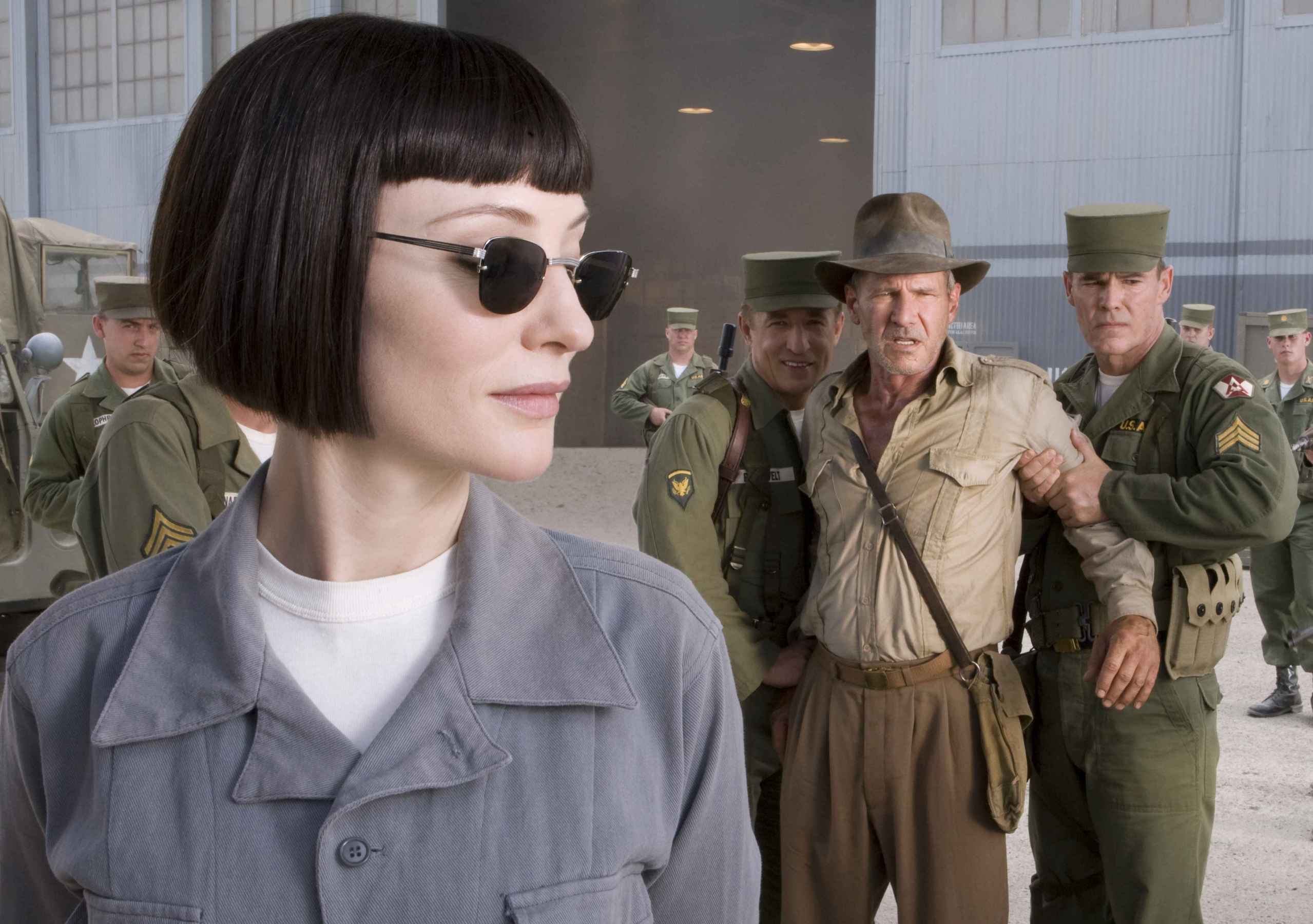
This is a hard one to discuss because many people really enjoyed this film. It received overall positive reviews, with some polarization. The film has appeared on best-of lists and worst-of lists. On the negative side, some critics and audiences thought it was not worth the 19-year wait since the last movie in the franchise, “Indiana Jones and the Last Crusade”.
Others commented that it seemed they were going through the motions and there was an overall lifeless quality to the motion picture. Another overarching theme was the focus on predictable plot points and cheesy special effects; basically, they “nuked the fridge”, to use the term many fans used to describe their displeasure of the film, based on a scene from the film.
So, Ebert was not alone in his praise. He gave “Indiana Jones and the Kingdom of the Crystal Skull” three and a half stars, stating that it was the same old, same old, but that is what he wanted it to be. He said there is no point to comparing the four films of the franchise, saying if you eat four pounds of sausage, how do you choose which one tasted the best? I would argue, much like the Indiana Jones franchise, that the first pound of sausage, or “Raiders of the Lost Ark”, was the best.
It’s even included in your Great Movies series, Roger. He praised Harrison Ford for his performance, as do I. However, use a different tone; “Kingdom of the Crystal Skull” was the same old, same old, but I did not like it that way.
3. Knowing
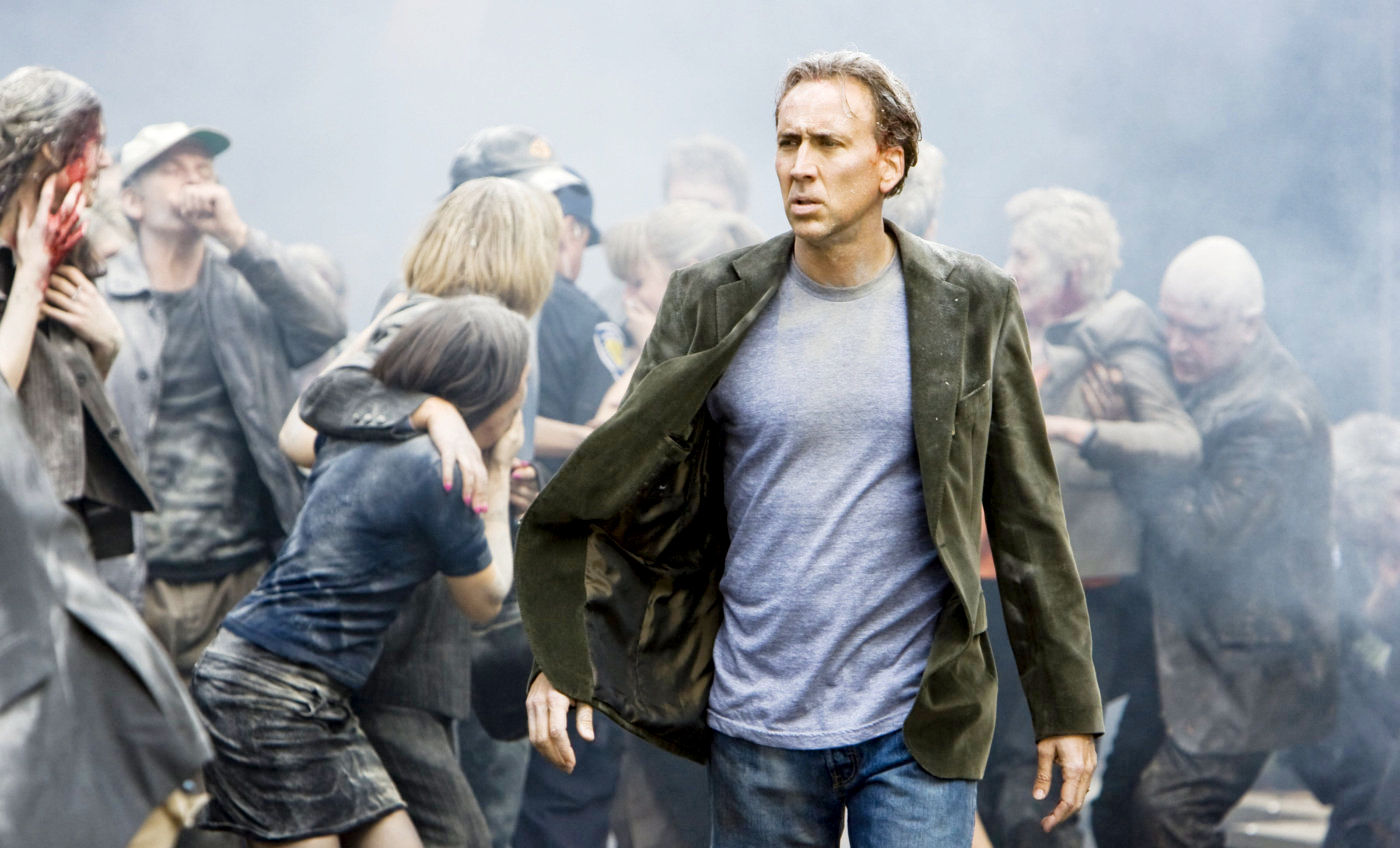
“Knowing is among the best science-fiction films I’ve seen — frightening, suspenseful, intelligent and, when it needs to be, rather awesome.” Ebert later placed the film as his sixth best for all of 2009. When Ebert posted this review, the Internet went absolutely bonkers.
They tore him apart, even though many hadn’t even seen the film, saying that the critic had lost his knack and was giving everything four stars now. Ebert does have a thoughtful philosophical engagement with the film. Ideas that were fresh for me as I was trying to get around a lame story, shoddy acting, and Nicolas Cage as an astrophysicist.
Of course, this was not the first time I was disappointed with an Alex Proyas directed film, and “I, Robot” is an example. Much of the film’s criticisms came from its pseudo-scientific approach. Ian O’Neill of Discovery News criticized the film’s solar flare plot line, pointing out that the most powerful solar flares could never incinerate Earthly cities.
Erin McCarthy of Popular Mechanics calls attention to the film’s confusion of numerology, the occult study of how numbers like dates of birth influence human affairs, with the ability of science to describe the world mathematically to make predictions about things like weather or create technology like cell phones.
Based heavily in science or not, I completely disagree with Ebert here. It was not the worst film of 2009, but it certainly wasn’t one of the best, and to place “Knowing” among science fiction’s best is a disservice.
4. Anaconda
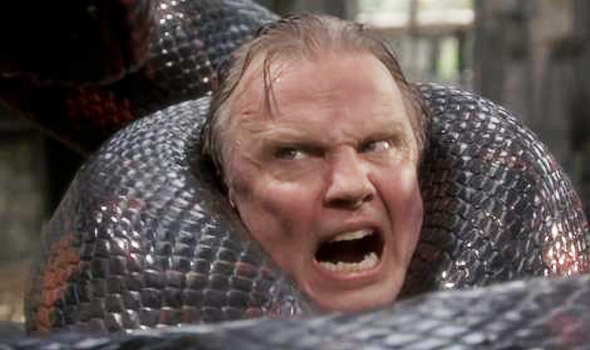
So bad it’s good. At least for some. “Anaconda”, directed by Peruvian director Luis Llosa, centers on a documentary film crew who have been taken hostage by a snake hunter who is going after the legendary giant anaconda, which is discovered in the Amazon rainforest. It stars the the interesting ensemble of Jennifer Lopez, Ice Cube, Jon Voight and Eric Stoltz.
Julianna Margulies and Gillian Anderson definitely dodged a bullet due to their television commitments. Upon release, most critics blasted the film, even with some praised elements such as the effects, scenery, and tongue-in-cheek humor. However, many criticized its forgettable and cardboard-like characters, inaccuracies and boring start.
My main criticism of the film is casting Jon Voight as a Paraguayan snake hunter, His accent is atrocious and is basically him going from his natural New Yorker to Ricky Ricardo and back. Ebert, however, thought the film had a nice blend of quirky dialogue, imagination, laughs and thrills. I guess he was laughing at how bad it was. Nope. He gave it three and a half stars. He said it was splendidly acted! Did we watch the same movie?
It has become a cult classic and does get put in the “so bad it’s good” category. Maybe Ebert was predicting the future and saying we would all like it in the end. I am not one of the cultish admirers. I anacondon’t like this movie.
5. The Happening
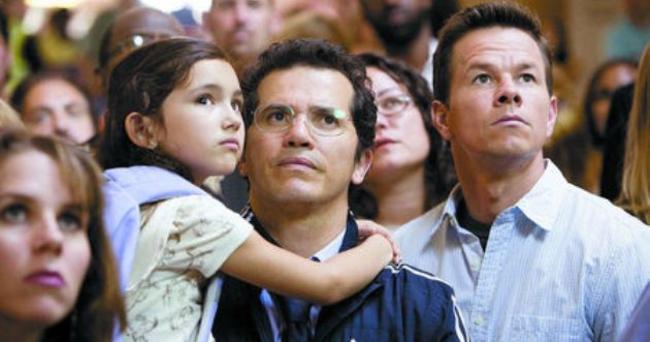
Written, co-produced, and directed by the ever-less-important M. Night Shyamalan, “The Happening” starred Mark Wahlberg and Zooey Deschanel, and followed Wahlberg, a high science teacher, and his wife as they try to escape an inexplicable natural disaster. A natural disaster is what this film was. Mark Wahlberg as a science teacher.
Who thought that was a good idea? He is supposed to figure out what is creating this neurotoxin that is making everyone commit suicide. Spoiler alert!!! It was the fucking trees, the plants. Really?!
Many, and I agree with this majority opinion, blasted the film as poorly acted, lacking any real tension, and offering little in the area of suspense. Even Wahlberg knocked it, saying later “It was a really bad movie… Fuck it. It is what it is. Fucking trees, man. The plants. Fuck it. You can’t blame me for not wanting to try to play a science teacher. At least I wasn’t playing a cop or a crook.”
Ebert acknowledged that he would be in the minority opinion by giving it a positive review. He gave “The Happening” three stars, saying the film was simply weaving a story of these people and how their lives and existence has suddenly become problematic.
He also found the film oddly touching and liked Shyamalan’s quiet approach to studying the existence of man and his possible death. I appreciate Ebert’s acknowledgement of where he stood in the overall opinion box, but I am going to have to strongly disagree with him here.